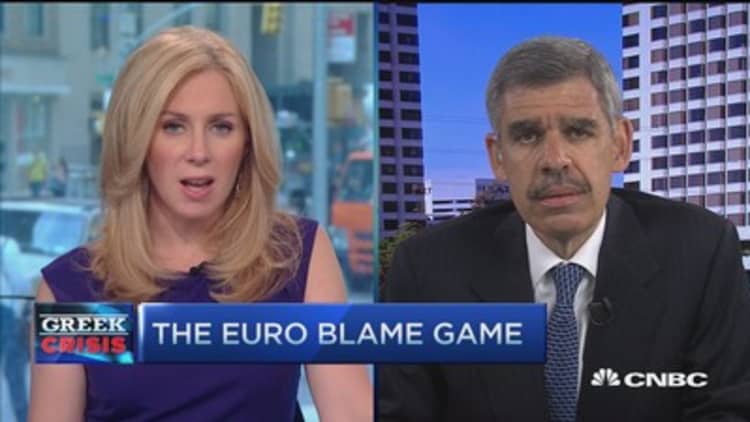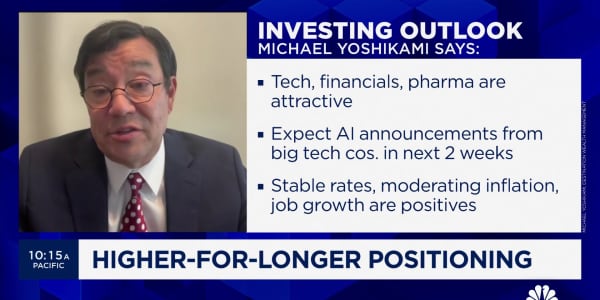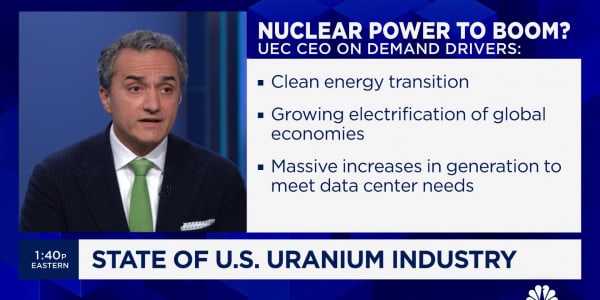
Investors enjoying the afterglow of a putative deal that will keep Greece in the euro zone for now might not want to get too comfortable.
Even after conquering seemingly insurmountable odds to strike a bargain with European authorities, the debt-plagued nation's biggest challenges await.
Overcoming the political fallout from forced austerity and trying to generate the kind of economic growth that will make the deal's conditions sustainable present the very real possibility that a Greek exit, or "Grexit," from the euro zone remains an inevitability.
"The likelihood of short-term Grexit remains significant given the strong conditionality contained in the proposal," Citigroup analysts said in a note. (Tweet This)
Market participants weren't thinking that way Monday. Every major global index was on the rise, with most European equity markets posting gains approaching 2 percent and U.S. stocks gaining 1 percent or more.
At the core of the deal is an agreement by Greece to adopt free-market economic reforms as well as austerity measures that will get it more in line with parameters set up for users of the common currency. In return, European authorities will provide some 86 billion euros over the next three years to help Greece deal with a crippling debt load equivalent to $360 billion.
Read MorePsst! Here's the secret about Greek debt drama
Holding up their end of the bargain will be onerous for Greeks.
"A lot will depend on the degree of support that the current administration (or the next coalition) can muster in the Greek parliament in coming quarters," Citi said. "From an economic and financial sector angle, the likelihood of medium-term Grexit will also depend on the strength of a possible economic recovery in coming quarters."
The numbers in that regard are daunting.
Gross domestic product has been positive of late, with the most recent reading in June at 0.2 percent growth. Greece's unemployment rate remains at 25.5 percent, though it has been on the decline. It has a current account balance just shy of $1 billion and a strong current of deflation whipping through, with the consumer price index down 2.1 percent and the producer price index off 4.6 percent in May.
The cost of insuring its debt, measured in credit default swaps, has risen nearly 250 percent this year, according to FactSet.
"The fact that Greek banks will continue to be subject to stringent capital controls for some time and the lack of liquidity in the economy is likely to further weigh on the Greek economic outlook and public finances," Citi said. "This raises the risk that Greek economic and fiscal performance will undershoot its program targets, which could again imperil its membership in the euro zone. Continued bank closures and the absence of a noticeable economic recovery could also increase social tensions."
Read More Wilbur Ross: Here's the real goal of Greek deal
So what happens if Greece does leave the zone?
A separate analysis, from Julian Jessop, chief global economist at Capital Economists, suggests that it could be better for Greece in the long run.
"The conventional view, endorsed by politicians, central banks and most commentators, is that Grexit would be a disaster for Greece itself. However, given the mess that the Greek economy and financial system is in today, it is hard to see how the prospects could be much worse outside the euro," Jessop wrote. "Default and devaluation would at least free the economy from austerity and provide a much-needed boost to competitiveness."






